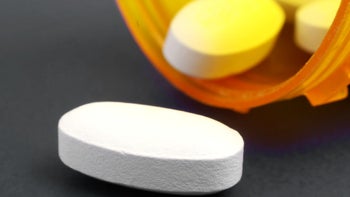
metoprolol tartrate
Metoprolol tartrate (Lopressor) is used to treat chest pain and high blood pressure. It's also used to lower the risk of death after a heart attack. This medication is taken by mouth, typically twice daily, though your dosage depends on what condition you have. Some side effects of metoprolol tartrate (Lopressor) include dizziness or tiredness. Metoprolol tartrate (Lopressor) is available as a brand name and generic tablet.

What is Metoprolol tartrate (Lopressor)?
What is Metoprolol tartrate (Lopressor) used for?
Chest pain (angina)
Lower risk of death after heart attack
How Metoprolol tartrate (Lopressor) works
Metoprolol tartrate (Lopressor) is a selective beta blocker. It slows down the heart which allows it to put less pressure on the body's blood vessels. By slowing down the heart, it also allows the heart to use less oxygen which improves chest pain.
Drug Facts
More on Metoprolol tartrate (Lopressor) essentials

Get your GoodRx coupon

What are the side effects of Metoprolol tartrate (Lopressor)?
Common Side Effects
- Tiredness (10%)
- Dizziness (10%)
- Diarrhea (5%)
- Rash (5%)
- Depression (5%)
Other Side Effects
- Swelling
- Trouble breathing
- Cold hands and feet
- Swelling in the legs, ankles, feet, or hands
- Nausea
- Stomach pain and constipation
- Passing gas
Serious Side Effects
- Heart failure: trouble breathing, fast weight gain, feeling very tired, chest pain, swelling in the legs, ankles, or feet
- Bronchospasm: tightness in the chest, trouble catching your breath, difficulty breathing, wheezing, cough, dizziness, extreme tiredness
Source: FDA
More on Metoprolol tartrate (Lopressor) side effects
The following side effects have also been reported
Along with its needed effects, a medicine may cause some unwanted effects. Although not all of these side effects may occur, if they do occur they may need medical attention.
Check with your doctor immediately if any of the following side effects occur:
More common
Blurred vision
chest pain or discomfort
confusion
dizziness, faintness, or lightheadedness when getting up suddenly from a lying or sitting position
slow or irregular heartbeat
sweating
unusual tiredness or weakness
Less common
Bloating or swelling of the face, arms, hands, lower legs, or feet
decreased urine output
difficult or labored breathing
difficulty with speaking
dilated neck veins
disturbed color perception
double vision
extreme tiredness or weakness
fast, pounding, or racing heartbeat or pulse
halos around lights
headache
inability to move the arms, legs, or facial muscles
inability to speak
irregular breathing
loss of vision
night blindness
noisy breathing
overbright appearance of lights
pain, tension, and weakness upon walking that subsides during periods of rest
paleness or cold feeling in the fingertips and toes
rapid weight gain
seeing, hearing, or feeling things that are not there
short-term memory loss
slow speech
swelling of the face, fingers, feet, or lower legs
tightness in the chest
tingling of the hands or feet
tingling or pain in the fingers or toes when exposed to cold temperatures
troubled breathing
tunnel vision
unusual weight gain or loss
Rare
Bluish color of the skin of the fingers or toes
chills
clay-colored stools
continuing loss of appetite
continuing or severe abdominal or stomach pain
continuing or severe nausea and vomiting
dark urine
difficulty with moving
general tiredness and weakness
hoarseness
increased frequency of urination
itching skin
light-colored stools
lower back or side pain
muscle pain or stiffness
numbness of the fingers or toes
pain, swelling, or redness in the joints
rash
sores, ulcers, or white spots on the lips or in the mouth
unpleasant breath odor
unusual bleeding or bruising
upper right abdominal or stomach pain
vomiting of blood
weakness
yellow eyes and skin
Get emergency help immediately if any of the following symptoms of overdose occur:
Symptoms of overdose
Bluish color of the fingernails, lips, skin, palms, or nail beds
change in consciousness
loss of consciousness
no blood pressure or pulse
stopping of the heart
very drowsy or sleepy
Some side effects may occur that usually do not need medical attention. These side effects may go away during treatment as your body adjusts to the medicine. Also, your health care professional may be able to tell you about ways to prevent or reduce some of these side effects. Check with your health care professional if any of the following side effects continue or are bothersome or if you have any questions about them:
Less common
Belching
bloated feeling
decreased interest in sexual intercourse
difficulty having a bowel movement
discouragement
excess air or gas in stomach or bowels
feeling of constant movement of self or surroundings
feeling of fullness
feeling of indigestion
feeling sad or empty
inability to have or keep an erection
irritability
loss in sexual ability, desire, drive, or performance
loss of interest or pleasure
nightmares
pain in the chest below the breastbone
passing gas
redness or other discoloration of the skin
sensation of spinning
tiredness
trouble concentrating
trouble sleeping
Rare
Bone pain
continuing ringing or buzzing or other unexplained noise in the ears
hair loss or thinning of the hair
hearing loss
increased sensitivity of the skin to sunlight
pain in the penis on erection
severe sunburn
Incidence not known
Change in taste or bad, unusual, or unpleasant (after) taste
fear or nervousness
hives or welts
Other side effects not listed may also occur in some patients. If you notice any other effects, check with your healthcare professional.
Call your doctor for medical advice about side effects. You may report side effects to the FDA at 1-800-FDA-1088.

Pros and cons of Metoprolol tartrate (Lopressor)

Pros
First choice treatment to prevent chest pain (angina)
First choice treatment for people who've had a heart attack because it lowers the risk of death
A possible option for mothers who are breastfeeding
Less likely to cause breathing problems than with other beta blockers
Available as a lower-cost generic version

Cons
Need to take with food
Need to take more than once a day
Not a first-choice treatment for high blood pressure, unless you have heart failure or heart disease
Can hide symptoms of low blood sugar
Stopping too suddenly can raise the risk of heart attack and stroke

Pharmacist tips for Metoprolol tartrate (Lopressor)

You should take metoprolol tartrate (Lopressor) right after meals. This can help lower your risk of side effects, such as dizziness.
Check your blood pressure regularly after starting metoprolol tartrate (Lopressor). Tell your provider if it hasn't improved after a week because they might need to adjust your dose of this medication.
Metoprolol tartrate (Lopressor) can make you feel dizzy, especially for the first few days after you start it. Take care when standing up from a seated or lying down position. Hold onto something to prevent yourself from falling down. If your dizziness doesn't go away, talk with your healthcare provider.
Avoid driving vehicles or anything else that requires your full attention until you understand how metoprolol tartrate (Lopressor) affects you. If this medication makes you dizzy, it can be dangerous to drive.
Metoprolol tartrate (Lopressor) might make you feel more tired or out of breath during exercise or your normal daily routines. This gets better for most people, but it might not go away for some people. Let your provider know if this side effect is making it difficult for you to go about your day.
Try not to drink alcohol with metoprolol tartrate (Lopressor). Beta blockers like metoprolol tartrate (Lopressor) can make you more drowsy and dizzy, and alcohol can make this even worse. If you drink alcohol regularly and it's difficult to stop completely, talk with your provider about what's a safer amount to drink.
Don't stop taking this medication suddenly unless your provider tells you to. Stopping metoprolol tartrate (Lopressor) all of a sudden cause your blood pressure to go up, which can raise the risk of heart attack and stroke. If you want to stop this medication, your provider can lower your dose slowly over time.
If you miss a dose of metoprolol tartrate (Lopressor), just skip the missed dose. Take your next dose at the next scheduled time. Don't double up to make up for the missed dose.
More on Metoprolol tartrate (Lopressor) tips

Frequently asked questions about Metoprolol tartrate (Lopressor)

How to save using GoodRx




What are the risks and warnings for Metoprolol tartrate (Lopressor)?
Metoprolol tartrate (Lopressor) can cause some serious health issues. This risk may be even higher for certain groups. If this worries you, talk to your doctor or pharmacist about other options.

Worsening chest pain and heart attacks
Risk factors: Stopping metoprolol tartrate (Lopressor) suddenly | Coronary artery disease (CAD)
Don’t stop taking metoprolol tartrate (Lopressor) suddenly as this may raise your risk of chest pain or heart attack. Some common symptoms of a heart attack include chest pain and tightness, pain that spreads to arms and neck, trouble breathing, lightheadedness, and fatigue. If you need to stop taking metoprolol tartrate (Lopressor) for any reason, let your healthcare provider know. They can work with you to lower your dose safely over time (which typically occurs over 1-2 weeks).

Heart failure
Risk factors: Heart failure
People with heart failure shouldn't take metoprolol tartrate (Lopressor) if their heart failure symptoms aren’t well-managed. That’s because this medication can make your condition worse. But you might be able to take metoprolol tartrate (Lopressor) if your healthcare provider thinks your symptoms are under controlled. Keep in mind that, though rare, sometimes taking a beta-blocker, like metoprolol tartrate (Lopressor) over time might lead to heart failure even in people without this condition. Let your healthcare provider know right away if you experience symptoms of heart failure, such as fluid build-up in different areas of the body including the ankles, legs, and lungs, and difficulty breathing.

Slow heart rate
Risk factors: Heart rate problems
Metoprolol tartrate (Lopressor) can slow your heart rate, which can be dangerous. Your provider might ask you to check your heart rate regularly throughout treatment. If it's too low or you feel symptoms such as dizziness or chest pain, let your provider know right away. They might need to lower your dose of metoprolol tartrate (Lopressor) or stop this medication altogether.

Hiding symptoms of low blood sugar
Risk factors: Diabetes
Taking metoprolol tartrate (Lopressor) can make it difficult for you to identify symptoms of low blood sugar, such as fast heart beat or tremors. If you’re taking medications, like glipizide or insulin, to lower your blood sugar, you might not be able to rely on all the typical symptoms of low blood sugar (e.g., irritability, sight tremors, confusion, and fast heartbeat) to warn you of a dangerous drop in your sugar levels. Sweating might be the only symptom not affected by taking metoprolol tartrate (Lopressor). Speak with your healthcare provider about when and how to monitor your blood sugar if you start metoprolol tartrate (Lopressor).

Hiding symptoms of overactive thyroid
Risk factors: Hyperthyroidism
If you have hyperthyroidism (overactive thyroid), talk to your healthcare provider before stopping metoprolol tartrate (Lopressor). Because metoprolol tartrate (Lopressor) lowers your heart rate, it may be harder to notice heart-related symptoms that are caused by hyperthyroidism. In some people, stopping this medication suddenly may lead to a condition called a "thyroid storm,” which may include symptoms such as a high temperature, rapid heartbeat, and fainting.

Greater risk during surgery
Risk factors: Major surgery requiring anesthesia
If you're planning to undergo a major surgery requiring anesthesia, tell your surgeon that you are taking metoprolol tartrate (Lopressor). If you've been taking it for a while, they probably won't ask you to stop it, they'll just need to monitor your heart closely during your procedure.

Risk of difficulty breathing
Risk factors: Chronic obstructive pulmonary disease (COPD) | Asthma
Metoprolol tartrate (Lopressor) can cause the vessels in your lung to tighten. This can make breathing difficult, especially in people with breathing problems, like asthma. This problem is very rare with metoprolol tartrate (Lopressor) because it's a selective beta blocker, meaning it targets your heart rather than your lungs. To be safe, make sure your provider knows about your full medical history before starting this medication.

Metoprolol tartrate (Lopressor) dosage forms
Typical dosing for Metoprolol tartrate (Lopressor)
High blood pressure: The typical dose is 100 mg to 450 mg daily, taken by mouth in divided doses.
Chest pain: The typical dose is 100 mg to 400 mg daily, taken by mouth in 2 divided doses.
Heart attack: Your provider might start metoprolol tartrate as an injection into the veins (IV) at the hospital after the heart attack. Once your provider decides it's appropriate, they'll have you start oral metoprolol tartrate (Lopressor). The typical starting dose is 50 mg by mouth every 6 hours for a couple of days. The typical recommended maintenance dose is 100 by mouth twice a day for 3 months.
More on Metoprolol tartrate (Lopressor) dosage forms

Interactions between Metoprolol tartrate (Lopressor) and other drugs
More on Metoprolol tartrate (Lopressor) interactions
Using this medicine with any of the following medicines is usually not recommended, but may be required in some cases. If both medicines are prescribed together, your doctor may change the dose or how often you use one or both of the medicines.
- Albuterol
- Ceritinib
- Clonidine
- Crizotinib
- Diltiazem
- Dronedarone
- Fenoldopam
- Fingolimod
- Formoterol
- Givosiran
- Indacaterol
- Iohexol
- Lacosamide
- Lercanidipine
- Levalbuterol
- Lidocaine
- Olodaterol
- Panobinostat
- Ponesimod
- Rifampin
- Rivastigmine
- Salmeterol
- Siponimod
- Terbinafine
- Terbutaline
- Verapamil
- Vilanterol
Using this medicine with any of the following medicines may cause an increased risk of certain side effects, but using both drugs may be the best treatment for you. If both medicines are prescribed together, your doctor may change the dose or how often you use one or both of the medicines.
- Acarbose
- Aceclofenac
- Acemetacin
- Acetyldigoxin
- Albiglutide
- Alfuzosin
- Alogliptin
- Amtolmetin Guacil
- Arbutamine
- Aspirin
- Bromfenac
- Bufexamac
- Bunazosin
- Canagliflozin
- Celecoxib
- Chlorpropamide
- Choline Salicylate
- Citalopram
- Clonixin
- Dapagliflozin
- Deslanoside
- Dexibuprofen
- Dexketoprofen
- Diclofenac
- Diflunisal
- Digitoxin
- Digoxin
- Dipyrone
- Doxazosin
- Droxicam
- Dulaglutide
- Empagliflozin
- Ertugliflozin
- Etodolac
- Etofenamate
- Etoricoxib
- Exenatide
- Felbinac
- Fenoprofen
- Fepradinol
- Feprazone
- Floctafenine
- Flufenamic Acid
- Flurbiprofen
- Glimepiride
- Glipizide
- Glyburide
- Ibuprofen
- Indomethacin
- Insulin Aspart, Recombinant
- Insulin Degludec
- Insulin Detemir
- Insulin Glargine, Recombinant
- Insulin Glulisine
- Insulin Human Inhaled
- Insulin Human Isophane (NPH)
- Insulin Human Regular
- Insulin Lispro, Recombinant
- Ketoprofen
- Ketorolac
- Linagliptin
- Liraglutide
- Lixisenatide
- Lornoxicam
- Loxoprofen
- Lumiracoxib
- Meclofenamate
- Mefenamic Acid
- Meloxicam
- Metformin
- Metildigoxin
- Mibefradil
- Miglitol
- Mirabegron
- Morniflumate
- Moxisylyte
- Nabumetone
- Naproxen
- Nateglinide
- Nepafenac
- Niflumic Acid
- Nimesulide
- Nimesulide Beta Cyclodextrin
- Oxaprozin
- Oxyphenbutazone
- Parecoxib
- Phenelzine
- Phenobarbital
- Phenoxybenzamine
- Phentolamine
- Phenylbutazone
- Piketoprofen
- Pioglitazone
- Piroxicam
- Pramlintide
- Pranoprofen
- Prazosin
- Proglumetacin
- Propoxyphene
- Propyphenazone
- Proquazone
- Repaglinide
- Rifapentine
- Rofecoxib
- Rosiglitazone
- Salicylic Acid
- Salsalate
- Saxagliptin
- Sitagliptin
- Sodium Salicylate
- St John's Wort
- Sulindac
- Tamsulosin
- Telithromycin
- Tenoxicam
- Terazosin
- Tiaprofenic Acid
- Tolazamide
- Tolbutamide
- Tolfenamic Acid
- Tolmetin
- Trimazosin
- Urapidil
- Valdecoxib
- Venlafaxine
- Vildagliptin

How much does Metoprolol tartrate (Lopressor) cost?

Metoprolol tartrate (Lopressor) contraindications
Moderate to severe heart failure
Low blood pressure (e.g., systolic blood pressure less than 100, cardiac shock)
Sick-sinus syndrome, heart block, other issues with heart rhythm
Low heart rate (e.g., less than 45 beats/min)

What are alternatives to Metoprolol tartrate (Lopressor)?
Chest pain (angina)
Lower risk of death after heart attack
High blood pressure
Chest pain (angina)
Lower the risk of hospitalization and death in heart failure

What is the latest news about Metoprolol tartrate (Lopressor)?

Metoprolol tartrate (Lopressor) images
Get savings updates for Metoprolol tartrate (Lopressor)
Receive price alerts, news, and other messages from GoodRx about Metoprolol tartrate (Lopressor) and other healthcare topics and relevant savings offers.By signing up, I agree to GoodRx's Terms and Privacy Policy, and to receive marketing messages from GoodRx.
References
Best studies we foundDrugs and Lactation Database (LactMed). (2022). Metoprolol. National Institute of Child Health and Human Development.
MedlinePlus. (2021). Heart block.
MedlinePlus. (2022). Sick sinus syndrome.
National Heart, Lung, and Blood Institute. (2022). What is cardiogenic shock?
National Heart, Lung, and Blood Institute. (2022). What is heart failure?
Validus Pharmaceuticals LLC. (2023). LOPRESSOR- metoprolol tartrate tablet [package insert]. DailyMed.
Vue, M. H., et al. (2011). Drug-induced glucose alterations part 1: Drug-induced hypoglycemia. Diabetes Spectrum.
Whelton, P. K., et al. (2017). 2017 ACC/AHA/AAPA/ABC/ACPM/AGS/APhA/ASH/ASPC/NMA/PCNA guideline for the prevention, detection, evaluation, and management of high blood pressure in adults: A report of the American College of Cardiology/American Heart Association Task Force on Clinical Practice Guidelines. Hypertension.
Compare other Heart Attack, Hypertension, Angina drugs
Browse medications
View AllResearch prescriptions and over-the-counter medications from A to Z, compare drug prices, and start saving.



















